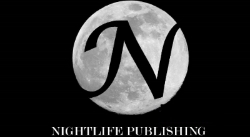Spying is often referred to as the second oldest profession (prostitution being the first). In Espionage and Covert Operations: A Global History, Professor Vejas Gabriel Liulevicius traces spying from Biblical mythology up to our current surveillance state. While the
Liulevicius takes the reader on a trip through the major epochs of world history and attempts to peer behind the curtain to see how spying (stealing secret information for a political, military or economic goal) and covert action (secret attacks against opposing forces) have shaped historical events. The book does offer a fresh perspective on the world history you took in high school and draws out themes in tradecraft and operational methods for the readers of modern and historical espionage. Liulevicius even explores the relationship between spy fiction and the real world of spies, focusing on the impact of Kipling, Fleming, Le Carre and Clancy.
Where the book falls short is in its lack of global focus. The vast majority of the course is Eurocentric and biased towards the United Kingdom, the United States and Russia. The combined impact of the assassins of the Crusades, Chinese espionage during Sun Tzu’s warring states period and the rampant spying during the Sengoku period of Japan take up less than ten minutes in a twelve hour lecture. The organic covert action and spy activities by and against populations in Africa during the slave trade are left out completely. If you accept the term “global history” to mean “Western history” then the book has few flaws. Anyone looking for a true global history will need to add another source to this material.
Espionage and Cover Action is a solid overview of the second oldest profession. Anyone interested in history, military affairs, or spy fiction will enjoy the unique perspective the author provides. Like most introductory courses, it should be used as the beginning of an exploration into the subject and not a definitive analysis. But it is one of the better books on spy history I’ve read.
Have fun.
Gamal

